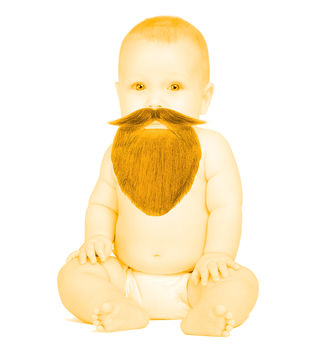What's My Age Again?
We use mental shortcuts to guess the ages of those around us—but we aren't always correct.
By Lucy Hicks published March 5, 2019 - last reviewed on May 6, 2019

Whether looking for a date or serving someone a beer, we regularly assess the age of the faces we encounter. The judgments aren't always accurate; in fact, studies find that they're off by six years, on average.
Research recently published in Royal Society Open Science aimed to uncover why such errors occur. It identified two patterns of bias in how we perceive others' ages. Across three studies, participants looked at photos to guess the age of about 3,500 people between ages 7 and 70. Overall, younger faces tended to be judged as older than they actually were, and older faces judged as younger. Estimates were also strongly influenced by the previous face: A face tended to be read as younger if it followed a younger face; it seemed older if an older face preceded it.
Our brain uses mental shortcuts—like defaulting toward middle age, or assuming two nearby faces are of similar ages—to process new information, says study author Tamara Watson, a psychologist at Western Sydney University. This may help us assess people more quickly, she explains, but our biases aren't always advantageous: "We should look a bit deeper than our first impressions."
